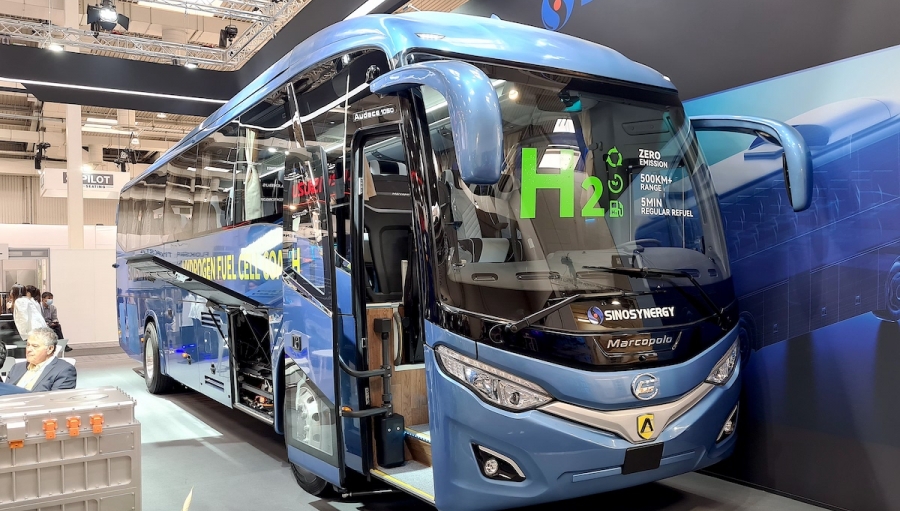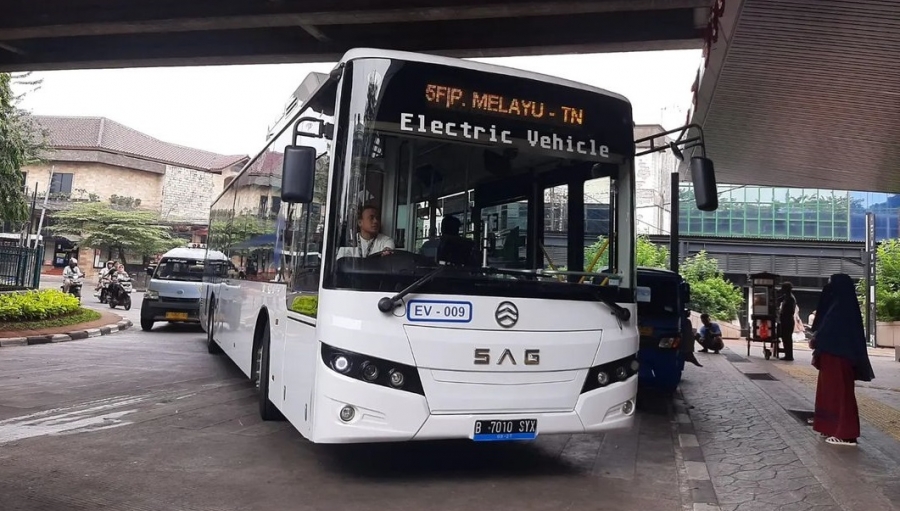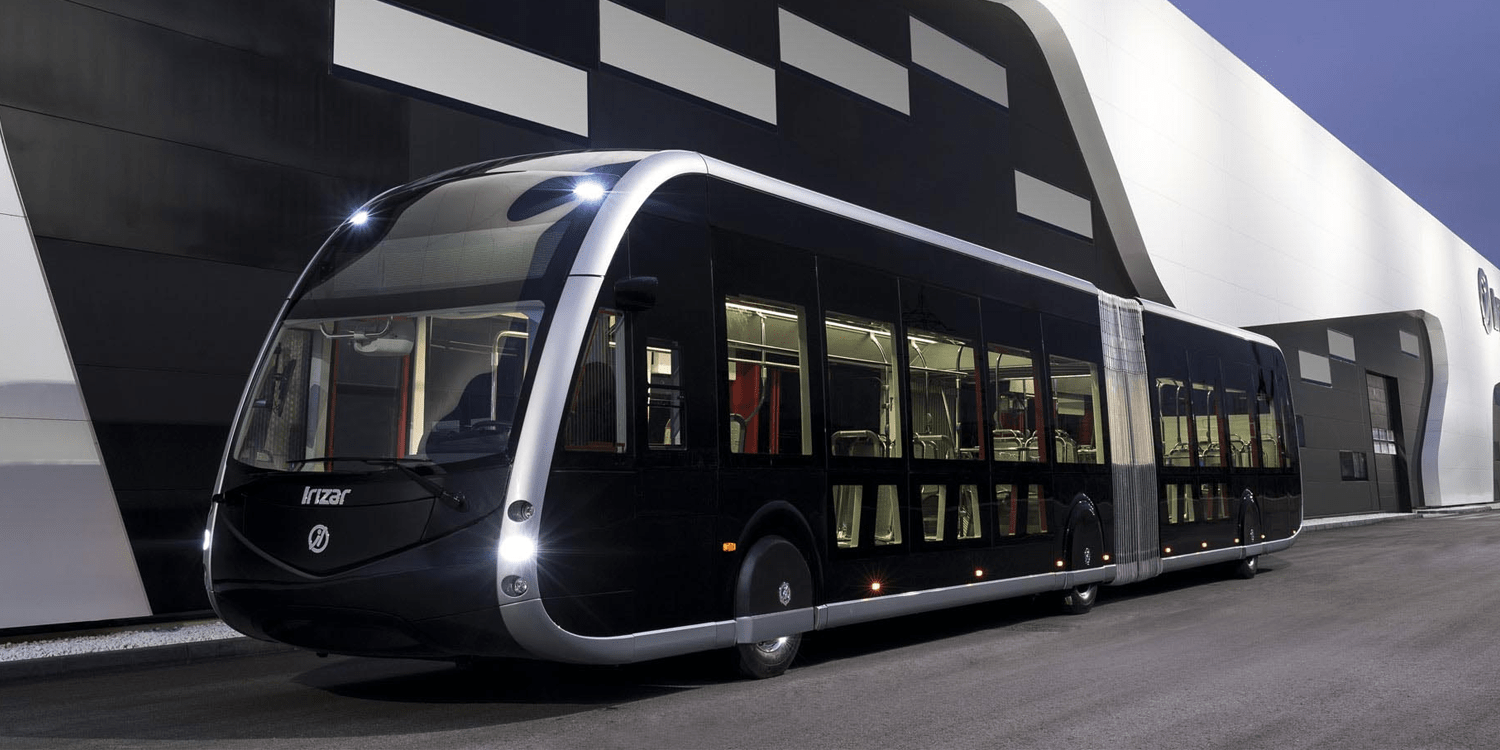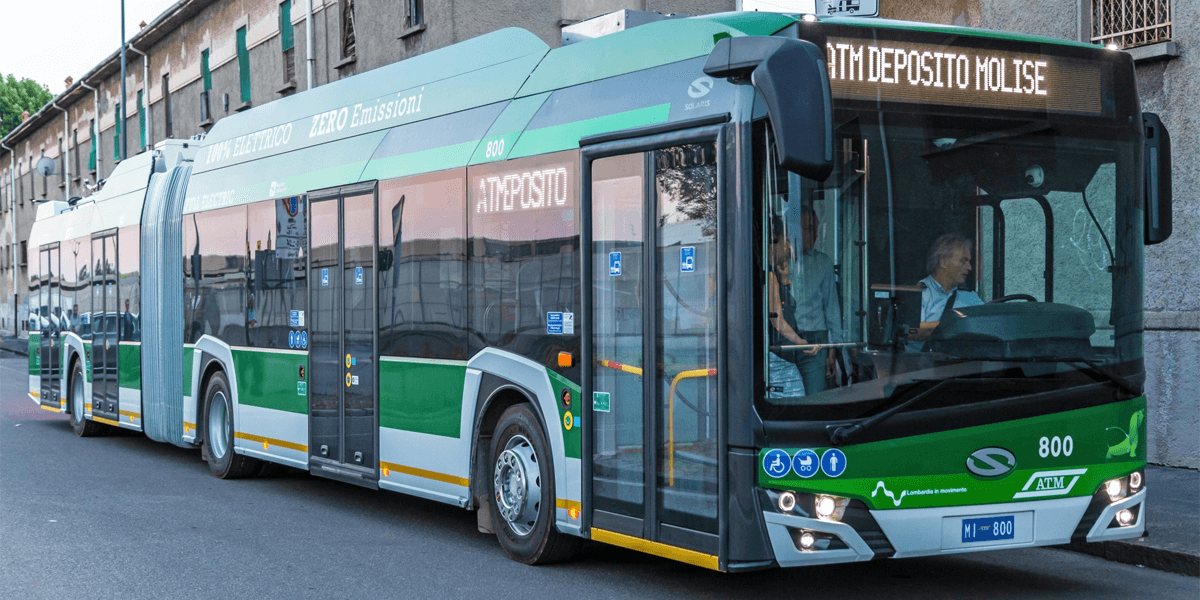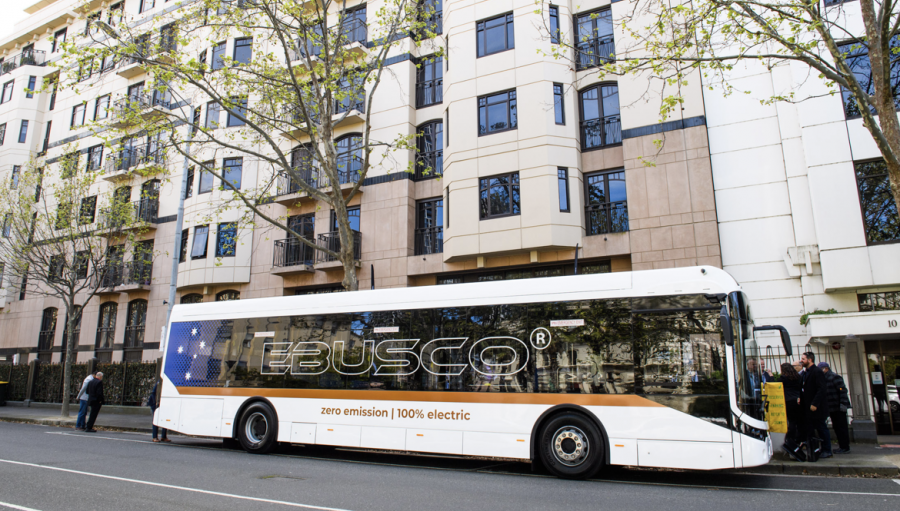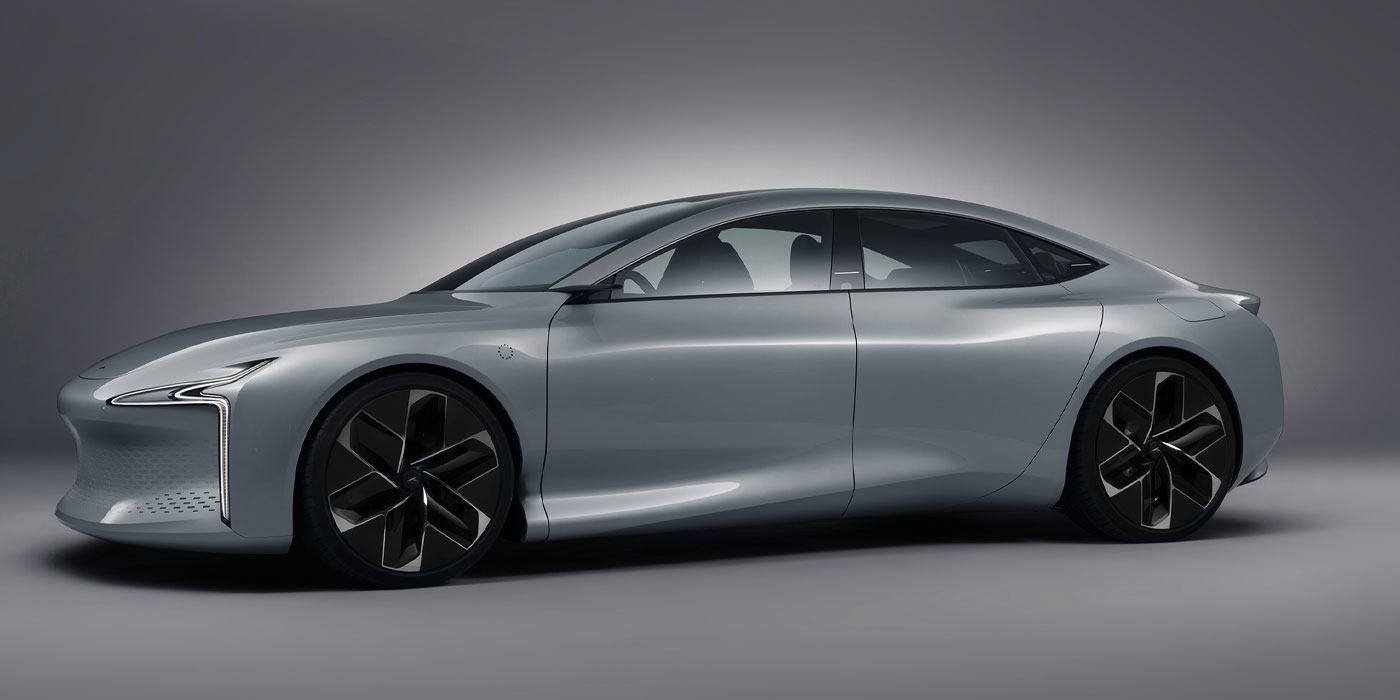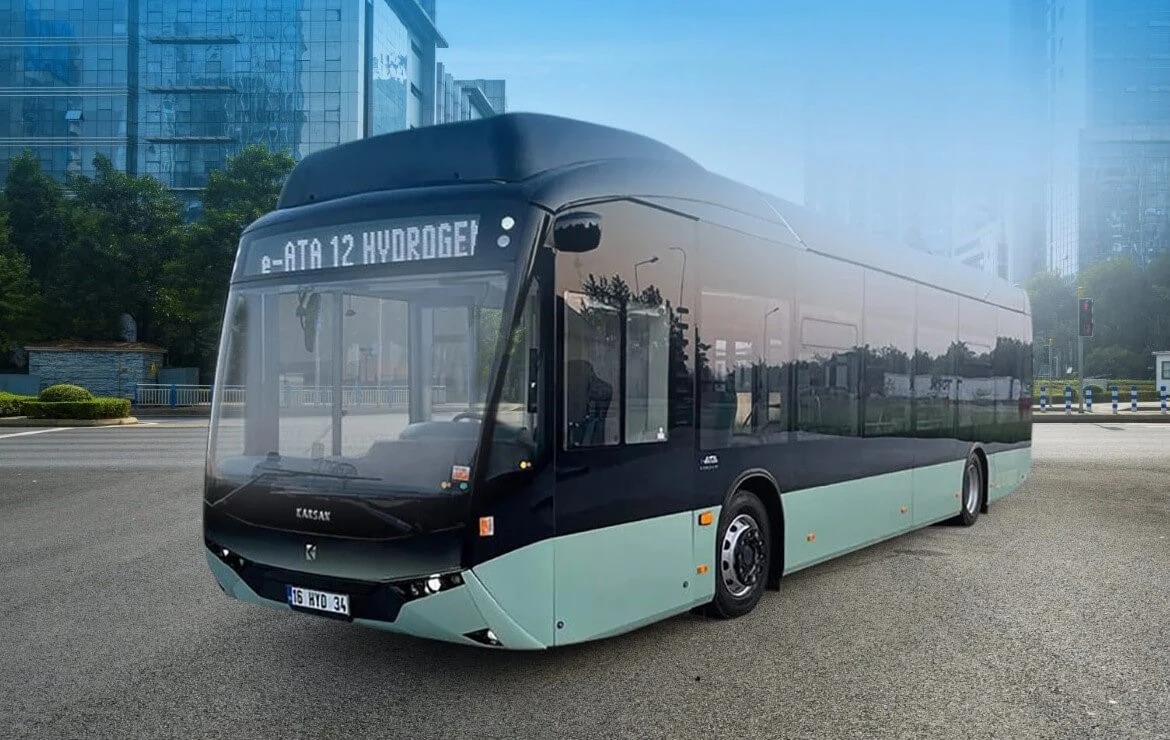At the IAA transportation exhibition in Hanover, Germany, Sino-Synergy Hydrogen Technology Co., Ltd. (Sinosynergy) a bus company from China brought Europe’s first hydrogen fuel cell bus.
Sinosynergy supplied fuel cell technology, including fuel cell membranes and propulsion, to Feichi Bus in collaboration with Allenbus (a Chinese bus manufacturer and with FCEV vehicles on the market) supplying the bus chassis, while Danfoss contributed the drive motor (synchronous permanent magnet), battery storage , and energy conversion technology.
The body of this bus made by Marcopolo Audace is 12m long (also available 11.9m, 12.3m or 12.6m) moving forward with a wheelbase of 6,100 to 6,650 mm and is 2.5m wide and 3.7m high.
The engine of the bus has a power of 143 kW (235 kW peak) and 495 Nm of torque (720 Nm peak). The Sinosynergy fuel cell (type G80-001) is equipped with four CATL LiFeO storage batteries (iron-lithium type). Four hydrogen tanks (currently designed for 700 bar) in the luggage compartment of the bus.
For the front axle, the bus uses the ZF model (type RL82EC), and the rear axle uses ZF / AV133 type with automatic transmission type (THP90 type) derived from ZF, air suspension and braking technology with EBS, ESP, AEB, LDWS from Knorr.
Together with local partners, Sinosynergy now plans to offer buses not only in the European market but also in the Southeast Asian and American markets. This bus has a capacity of up to 53 passengers and the passenger compartments can be equipped individually according to customer requirements.
Sinosynergy claims this bus can be traveled up to 600 km, with refueling which takes five minutes. An alternative to FCEV drives is also offered a battery-electric solution, as called by Sinosynergy in Hannover.
Sinosynergy general manager Cynthia Zhu said, “As a pioneer in the FCEV propulsion concept, we are committed to advancing hydrogen technology around the world. The company’s entry into the European market at the IAA is an important milestone for the company.
“Vehicles equipped with fuel cells have traveled more than 200 million kilometers to date and are used in more than 40 cities around the world. The Chinese company promises a lifespan of up to 30,000 hours when used in commercial vehicles,” he said.

